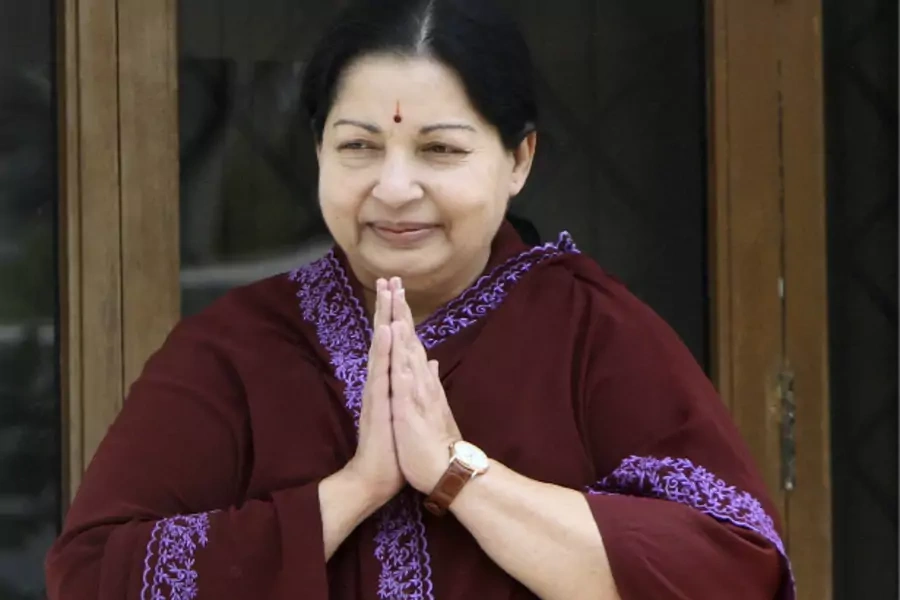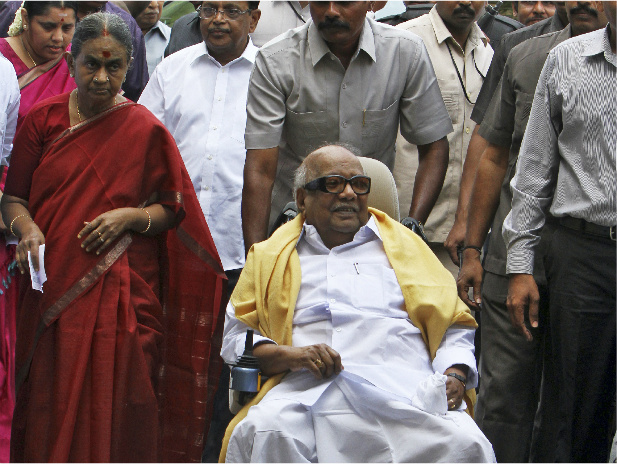The Indian Elections and Indian Foreign Policy: What Tamil Nadu Parties Have to Say

More on:
This post is part of a series on the Indian elections.
Campaigning for India’s national elections is in full swing. Parties have begun nominating candidates and 543 races for the lower house of parliament are on. But despite the election fever pitch, the two major national parties—the ruling Congress Party and the opposition Bharatiya Janata Party—have not yet released their election platforms, or “manifestos,” as they are called. This leaves voters and observers playing a parlor guessing game on the domestic and foreign policy priorities each will formally prioritize. This year’s manifesto writing process even has a new crowdsourcing twist: Both Congress and BJP are accepting suggestions on the web.
There’s one major state in India, however, where parties have already released their manifestos: Tamil Nadu. Both the All India Anna Dravida Munnetra Kazhagam (AIADMK) and the Dravida Munnetra Kazhagam (DMK) have released their documents. And both have some specific positions on India’s policy toward neighboring Sri Lanka.
Of course, there’s much history here. In the past two years, Tamil Nadu’s politicians of all stripes called for India to support U.S.-sponsored resolutions on reconciliation in Sri Lanka in the UN Human Rights Council in Geneva. India typically stays away from single-country resolutions, and relations with such a close neighbor are sensitive and important for India’s national security. The resolutions sparked an intense domestic debate, raising tough questions like whether it was in India’s interest to alienate Colombo by voting against it. Sri Lanka has a strong and growing relationship with China, a fact lost on no one.
On the other hand, given India’s example of democracy amidst great diversity and seventy million-strong Tamil population, many argued that India’s greater interests lay in calling for devolution of power in Sri Lanka and full implementation of the 13th amendment to the Sri Lankan constitution to that end, and the empowerment of Sri Lanka’s Tamil minority. This is the “rights versus realism” tension. A harder issue for India was whether to support the resolution’s request for the Sri Lankan government to investigate allegations of human rights abuses and violations of humanitarian law during the end of the long-running conflict there in 2009. India ended up voting for the resolutions in both 2012 and 2013. Even so, last year the Congress-led coalition government lost a major Tamil coalition ally, the DMK, which walked out of the government days prior to the vote in Geneva, stating that the Indian government should have pushed for tougher resolution language.
This year’s resolution, introduced by the United States with several co-sponsors, takes things a step further by endorsing a call by the UN High Commissioner for Human Rights for an international mechanism to investigate allegations of abuses in Sri Lanka. The current program of work for the UN Human Rights Council has a discussion on Sri Lanka scheduled for March 26. The Indian government has said little publicly about the Sri Lanka resolution so far.
But the AIADMK suffers from no such reticence. Its official manifesto explicitly pledges support for Sri Lankan Tamils:
The AIADMK is determined to ensure that punishment is given through the International Court of Justice to all those who committed war crimes and genocide against the Tamil minorities during the internal strife in Sri Lanka, which was against international regulations. The AIADMK is also determined to move the United Nations to take action and render justice to the Tamils in Sri Lanka and for holding a Referendum amongst Tamils in Sri Lanka and displaced Sri Lankan Tamils across the world for formation of a separate Eelam.
This pledge goes much, much farther than any of the UN Human Rights Council resolutions, first by calling for punishment through the International Court of Justice prior to any international investigation, but second and most importantly, by explicitly calling for a referendum for the formation of a separate Eelam, or separate Tamil homeland in the north of Sri Lanka. Every international effort to date has called for political settlement and progress on reconciliation on the island but within the framework of a unified Sri Lanka.

The DMK’s manifesto has a slightly different perspective. First, it calls for the central government to “appoint only qualified Tamils as envoys to the nations in which Tamils live in considerable number.” Second, it specifically references the Human Rights Council resolution, and notes that Tamil organizations have been calling for an independent (not domestic) investigation into allegations of rights abuses, and says that “the DMK will continue to persuade India to urge countries of the world to undertake an independent international probe into human rights violations, war crimes, and genocide in Sri Lanka.” It then urges:
…immediate action for conducting a referendum under the supervision of the UNO among Tamils in Northern and Eastern provinces of Sri Lanka and migrated Eelam Tamils to choose a permanent political solution of their choice and as interim relief press the Lankan regime to implement the provisions of the 13th Consitutional amendment to get full powers for fulfilling the aspirations of Tamils.
So the DMK stops short of explicitly calling for a separate homeland, leaving open the question of how best Sri Lanka’s Tamils should gain a measure of political autonomy.
Individual political parties do not unilaterally determine India’s foreign policy, and the perspective of one state does not override national considerations. But it will be interesting to see whether either the AIADMK or the DMK end up joining a coalition to form the government come mid-May, and how their positions will have an impact on India’s foreign policy.
Follow me on Twitter: @AyresAlyssa
More on:
 Online Store
Online Store